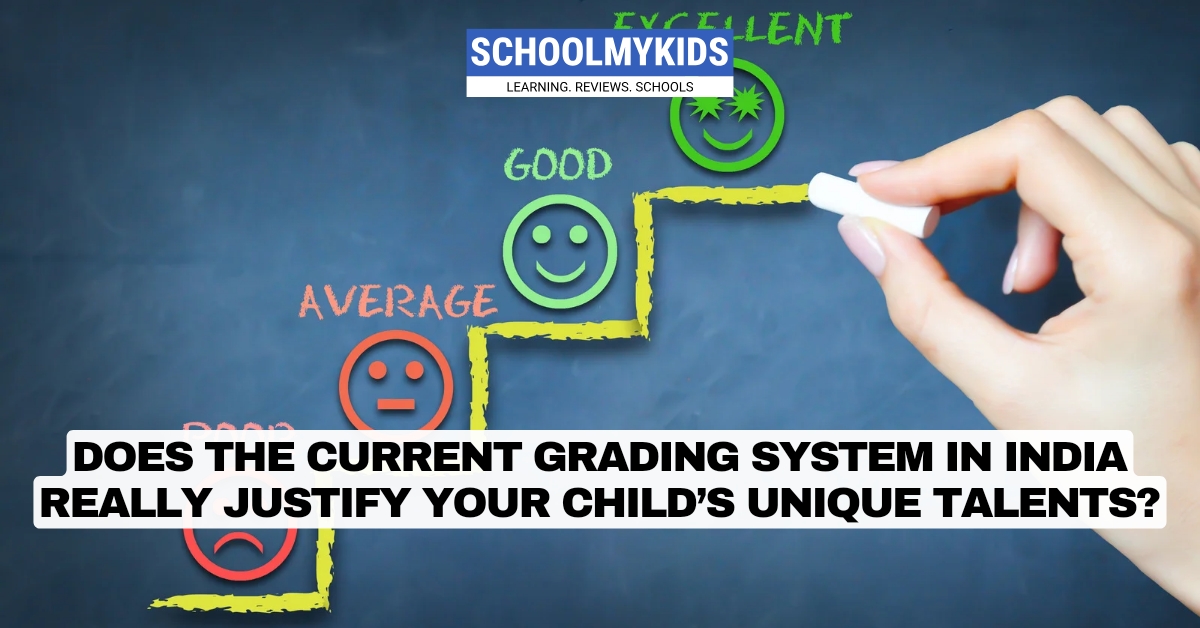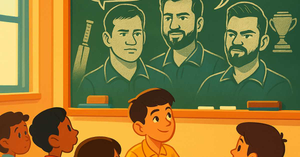In the Indian education system, grades and marks have traditionally been the primary measure of a student’s abilities and potential. Parents, teachers, and students alike often view high scores as a gateway to future success. However, this grading-centric approach raises a significant question: Does the current grading system in India truly justify and reflect your child’s unique talents? This article delves into the nuances of the Indian grading system, its impact on students, and the need for a more holistic approach to evaluating young minds.
The Predominance of Academic Grades
In Indian schools, academic performance is predominantly measured through exams and assessments. These assessments typically focus on a student’s ability to memorize and reproduce information. While this method has its merits, it often fails to capture a child’s diverse talents and abilities. Subjects like art, music, sports, and other extracurricular activities, which are vital for a well-rounded development, often take a backseat.
Limitations of the Current System
- One-Size-Fits-All Approach: The existing grading system largely follows a uniform approach, where all students are evaluated based on the same criteria. This standardization overlooks individual learning styles, strengths, and interests, leading to an incomplete assessment of a child’s capabilities.
- Stress and Anxiety: The intense focus on grades and academic performance can cause significant stress and anxiety among students. The pressure to achieve high marks often overshadows the joy of learning and exploration. In extreme cases, this can lead to burnout and mental health issues.
- Neglect of Non-Academic Skills: Talents in areas such as creativity, critical thinking, leadership, and emotional intelligence are not adequately measured by traditional grading systems. As a result, children who excel in these areas might feel undervalued and demotivated.
The Need for a Holistic Approach
To truly recognize and nurture a child’s unique talents, it is essential to adopt a more holistic approach to education. This involves incorporating various forms of assessment that go beyond rote learning and written exams. Here are some key elements that can contribute to a more comprehensive evaluation system:
- Continuous and Comprehensive Evaluation (CCE): Implementing CCE can help track a student’s progress throughout the academic year, rather than relying solely on final exams. This method includes periodic assessments, project work, and class participation, providing a more rounded view of a student’s abilities.
- Incorporating Extracurricular Activities: Schools should give equal importance to extracurricular activities, allowing students to explore their interests and talents. Assessing performance in areas like sports, arts, and community service can highlight strengths that traditional exams might miss.
- Personalized Learning Plans: Developing personalized learning plans for students can address their individual needs and preferences. This approach recognizes that each child learns differently and at their own pace, fostering a more inclusive and supportive learning environment.
- Skill-Based Assessments: Moving towards skill-based assessments can help identify and nurture talents that are not reflected in academic grades. For example, evaluating problem-solving abilities, communication skills, and teamwork can provide a more accurate picture of a child’s potential.
Success Stories from Alternative Approaches
Several educational institutions in India and around the world have successfully implemented alternative assessment methods that emphasize holistic development. For instance:
- Montessori Schools: Montessori education focuses on individualized learning and hands-on activities. Students are encouraged to explore subjects at their own pace, fostering creativity and independent thinking. Assessments are based on observations and developmental milestones rather than standardized tests.
- Waldorf Schools: Waldorf education emphasizes artistic expression, practical skills, and social development. Students are assessed through narrative reports and portfolios, highlighting their progress in various domains beyond academics.
- Alternative Education Models: Schools like Rishi Valley in India follow a flexible curriculum that integrates academic learning with extracurricular activities. Students are assessed through project work, presentations, and self-assessment, promoting a deeper understanding of subjects.
Parental Involvement and Support
Parents play a crucial role in recognizing and nurturing their child’s unique talents. Here are some ways parents can support their children beyond the traditional grading system:
- Encouraging Diverse Interests: Encourage your child to explore various interests and hobbies. Whether it’s music, sports, or art, providing opportunities for diverse experiences can help identify hidden talents.
- Fostering a Growth Mindset: Emphasize the importance of effort, perseverance, and learning from mistakes. A growth mindset encourages children to view challenges as opportunities for growth rather than obstacles.
- Celebrating Achievements: Celebrate your child’s achievements in all areas, not just academics. Recognizing their efforts and successes in extracurricular activities can boost their confidence and motivation.
- Communicating with Educators: Maintain open communication with teachers and school administrators. Discuss your child’s strengths and areas for improvement, and advocate for a more holistic approach to their education.
Conclusion
The current grading system in India, with its heavy emphasis on academic performance, often fails to capture the full spectrum of a child’s unique talents and abilities. To truly justify and nurture these talents, it is essential to adopt a more holistic approach to education. By incorporating continuous assessments, extracurricular activities, personalized learning plans, and skill-based evaluations, we can create a more inclusive and supportive environment for our children. As parents and educators, it is our responsibility to recognize and celebrate the diverse potential of every child, ensuring they are well-prepared to succeed in all aspects of life.









Be the first one to comment on this story.